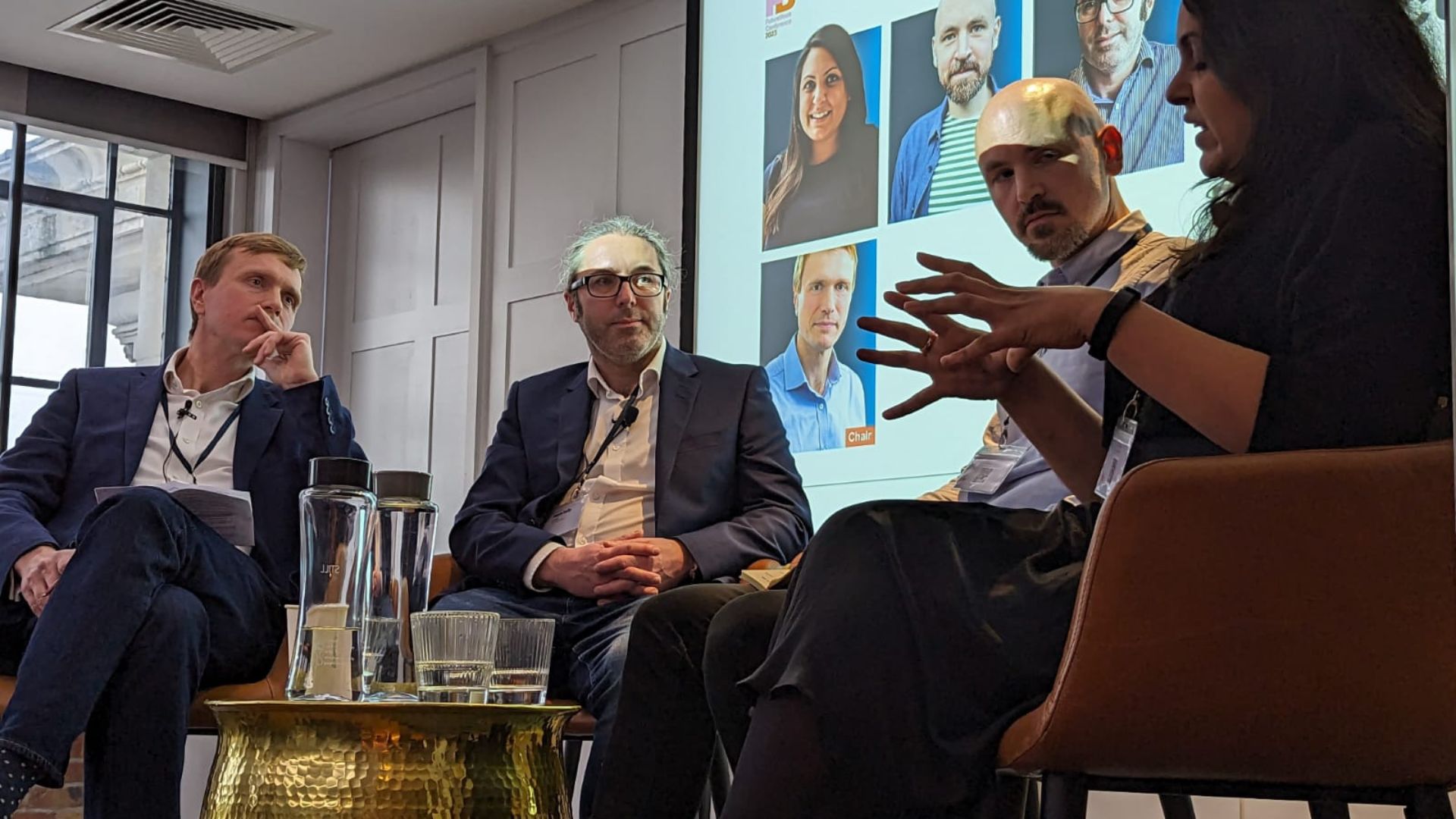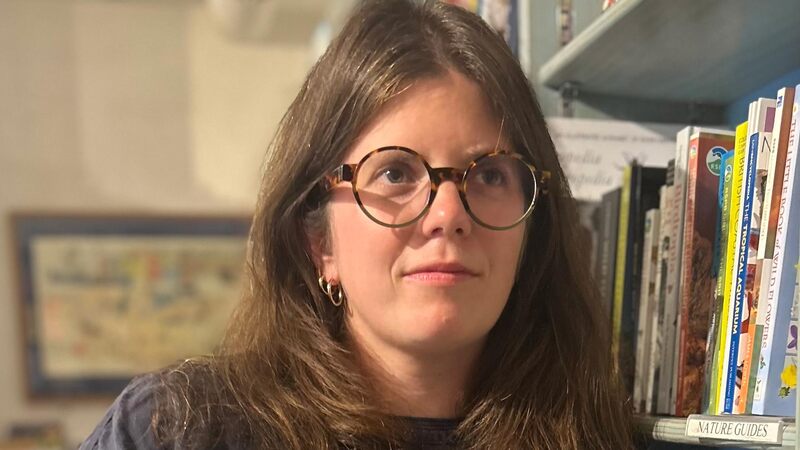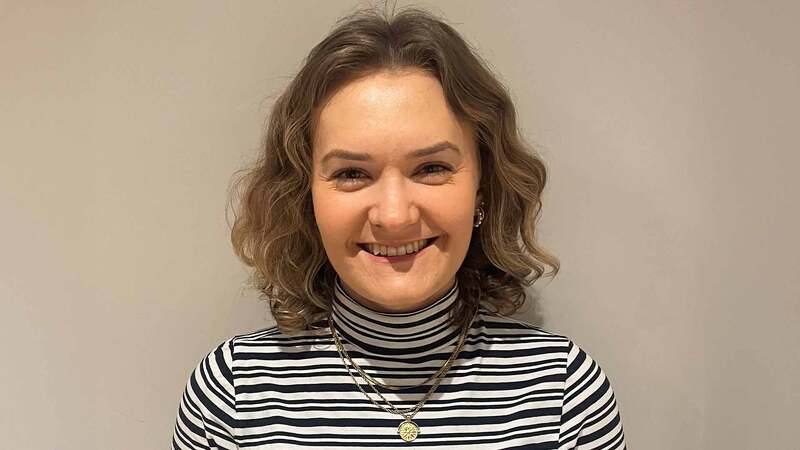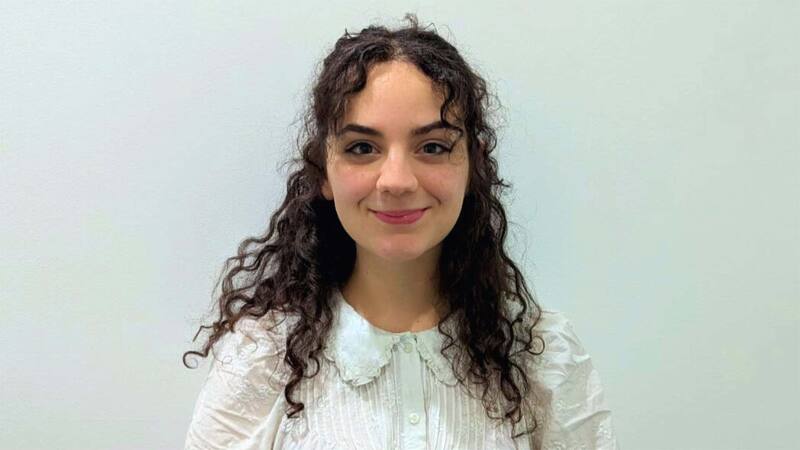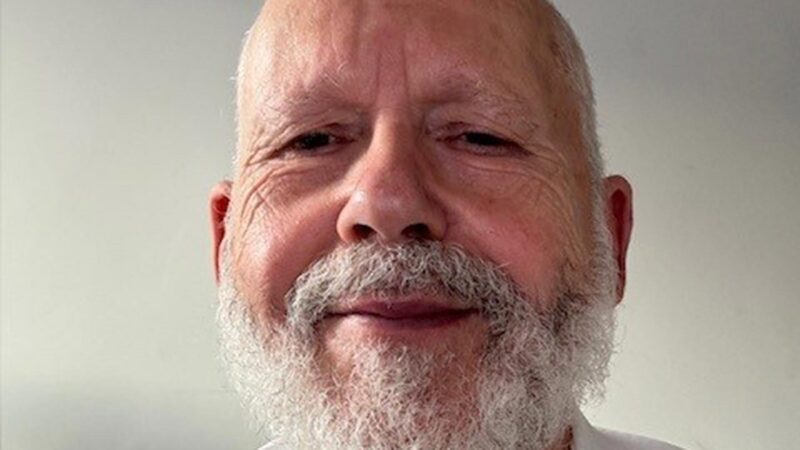You are viewing your 1 free article this month. Login to read more articles.
AI narration could help smaller presses bring more audiobooks to market, FutureBook hears
AI narration has the potential to help smaller independent presses bring more audiobooks to market, and quicker, but is not yet making an impact at the bigger publishers, delegates at FutureBook heard.
Speaking on the panel ‘Listen Up: How AI is Impacting Audio’ Dominic Gribben, audio director at Hachette UK, said the operational use of AI, “to support production processes and to help us do our jobs better” is “interesting” but he did not feel there was “a lot of consumer pull right now” on the voice side of things.
He explained: “I think the conversation around AI voice has been going on for some time, a lot of publishers have been watching that space for quite a long time, but still haven’t found a way of engaging with it in a way that makes sense. We haven’t found that business case yet.”
Ravina Bajwa, audio consultant and producer at Timbre Audio, agreed, noting “some of those things that are being billed as solutions, I don’t think necessarily fit actual production problems”. She argued AI is best used in audio to aid with personalisation, particularly around kids’ content. AI can also help with localisation, to speed up the process of adapting works into regional languages, such as Welsh, or commonly spoken languages, such as Polish or Punjabi, that are not usually published.
The discussion was moderated by Jon Watt, group audio director at Bonnier Books UK, who acknowledged that consumers have not yet been exposed to AI voices, making it tricky to predict what level of AI narration they will accept. Gribben also noted that the question of AI narration is likely to get some push back from authors and agents. “There’s a lot of people that need convincing before it becomes anything like mainstream,” he said.
But companies such as Sounded are beginning to use AI narration, recently signing with publisher Bennion Kearny to produce 10 audiobooks using digital replicas of real voice artists.
Speaking on the panel, Sounded’s chief legal officer, Jason Kelly, explained the different kinds of AI narration. Synthetic narration, or text to speech, is “as a mish mash of lots of audio voices that produce a distinct voice that isn’t recognisable to any individual person”. By contrast, voice cloning is audio produced from someone’s vocal characteristics without their consent. The use of the term "clone" helps to denote irresponsible behaviour with the way it has been produced. Finally, digital replicas are created with voice artists under a model of “consent, control and commission” and emphasise responsible behaviour behind the production of the vocal characteristic.
Kelly said: “We work with voice artists to produce with their consent digital replicas that are then licensed within the audiobook sphere to produce audiobooks. Models include offering a fixed fee to a voice artist each time their digital replica is used to create a product, or giving voice artists commission on the sales. “That’s entirely under the voice artist’s control” Kelly said.
He said narration was “getting better all the time” and voice artists “sign the digital replicas off based on the fact that they are as good as studio quality to that particular voice artist”. However, he stressed they are “not designed to replace studio-narrated content” but instead “allow you to bring more books to market a little bit quicker”.
Gribben said Hachette and other major publishers "don’t have a use case for” this kind of AI narration but he understood why “smaller publishers who can’t afford the outlay to start publishing seriously” might find it “attractive”.
A later panel on Spotify’s move into audiobooks saw trade figures discuss the different deals the Swedish tech giant is understood to have negotiated with big publishers, compared to small indies. Nathan Hull, chief strategy officer at Beat Technology, said he thought it was “very likely” that Spotify’s business model was going to change “soon” noting that the deal to give premium subscribers 15 free hours of audiobooks per month is designed to “give [listeners] a little bit, and then they’re hooked”.
“That’s good for the bigger picture of liking audio and spoken word and it’s incumbent on the publishers to really work out how to capitalise on that” he said.
“Because once they’re in – if you come in and buy an expensive book, does it make sense for the next read to be another expensive book? Absolutely not. It makes sense to have another book that that consumer is really going to enjoy and stay on the platform for, but they don’t want to be paying out at the same rate.”




